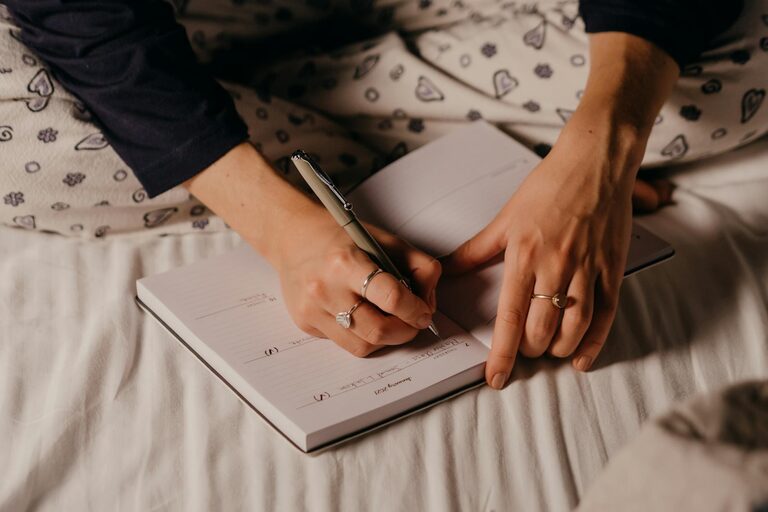
Creating a calm and peaceful evening routine can dramatically improve your overall well-being. The way you wind down after a busy day sets the tone for restful sleep and helps you recharge for tomorrow. Small changes to your evening habits often make a big difference, and they don’t require drastic lifestyle overhauls or expensive products. In this post, we’ll explore simple, practical steps you can take tonight to cultivate a more relaxed end to your day.
Why a Calm Evening Routine Matters
Before diving into specific tips, it’s helpful to understand why evening routines matter. The final hours before bedtime are a crucial time for your brain and body to transition from activity to rest. A rushed or stressful evening can keep your mind racing, making it tough to fall asleep or lowering the quality of your rest.
A calm evening routine can:
– Reduce stress and anxiety
– Improve sleep quality
– Boost mood and energy levels for the next day
– Encourage mindfulness and self-awareness
Creating a peaceful nighttime habit is about giving your body clear signals that the day is coming to a close and it’s time to recharge.
Start with Lighting
Light plays a significant role in regulating your circadian rhythm—the internal clock that tells your body when to feel awake or sleepy.
Dim the Lights
About an hour or two before bedtime, try dimming your household lights. Bright lights, especially those with blue wavelengths from screens and LEDs, can interfere with the production of melatonin, a hormone that helps induce sleep.
– Use lamps with warm, soft bulbs instead of overhead lighting.
– Consider installing dimmer switches to easily adjust brightness.
– Avoid screens or use blue light filters on devices during this time.
Set a Screen Curfew
Technology habits heavily influence evening calm. The temptation to scroll through social media or watch one more episode can delay your bedtime and overstimulate your brain.
Tips for Reducing Screen Time
– Set a specific time to turn off phones, tablets, computers, and TVs—ideally 30 to 60 minutes before bed.
– Use this time for relaxing activities like reading a book, journaling, or gentle stretching.
– If you use devices in bed, try blue light glasses or apps that reduce blue light emission.
Incorporate a Relaxing Activity
Replacing screen time with soothing activities helps signal to your brain that it’s time to wind down.
Ideas for Calming Evening Activities
– Read a physical book or magazine: Choose light, enjoyable content that doesn’t cause stress.
– Take a warm bath or shower: The rise and subsequent fall in body temperature can promote feelings of sleepiness.
– Practice gentle yoga or stretching: Focus on slow movements and deep breathing to relax muscles.
– Listen to calming music or nature sounds: Soft tunes help slow heart rate and reduce tension.
– Try mindfulness or meditation: Even five minutes of focused breathing or guided meditation can ease your mind.
Create a Consistent Schedule
Going to bed and waking up at the same time each day helps regulate your internal clock and improves sleep quality.
How to Build a Consistent Routine
– Choose a realistic bedtime that allows for 7-9 hours of sleep.
– Stick to this schedule every day, including weekends, to avoid disrupting your rhythm.
– Begin your winding down activities at the same time each evening to signal bedtime is approaching.
Prepare Your Sleep Environment
Your bedroom environment strongly influences your ability to relax and fall asleep quickly.
Tips for a Sleep-Friendly Space
– Keep your room cool, ideally between 60-67°F (15-19°C).
– Use blackout curtains or an eye mask to block light.
– Minimize noise or use a white noise machine if needed.
– Ensure your mattress and pillows are comfortable and supportive.
– Remove distractions such as clutter or electronics.
Limit Stimulants and Heavy Meals
What you consume in the evening can affect your rest.
– Avoid caffeine and nicotine at least 4-6 hours before bedtime.
– Skip large meals late at night; opt for light snacks if needed.
– Limit alcohol, which can disrupt sleep cycles.
Practice Gratitude or Journaling
Taking a few moments to write about positive experiences or things you’re thankful for can help shift your mindset from stress to calm.
How to Start
– Keep a journal by your bedside.
– Write 3 things you appreciated about your day.
– Reflect on something you’re looking forward to tomorrow.
Conclusion
Creating a calmer evening routine doesn’t require monumental changes—just mindful adjustments that encourage relaxation and rest. By dimming lights, reducing screen time, engaging in soothing activities, maintaining a consistent schedule, optimizing your bedroom, and paying attention to your diet and mindset, you can foster a peaceful end to each day.
Give these small changes a try and notice how much more restful your nights can become. A calmer evening routine is an easy and enjoyable way to support your physical and emotional well-being.
—
Feel free to share your favorite calming evening habits in the comments below!



